Anxiety and Nutrition - the Missing Link
Nutritional solution options need to be at the top of the list when seeking natural ways for anxiety relief.
Upon a recent review of our newly released e-book, “Anxiety Relief – An Herbal Guide” – I realized an error. The book and information are right on, exempt that it neglected a big part of the healing process, diet and nutrition. The importance of nutrition and dietary habits play a HUGE role in our level of health, how we feel, and our ability to manage and recover from stress and illness including anxiety.
The following article contains affiliate links. Please assume, that if there is a link, I am an affiliate. That means, if you purchase a product through one of the links, I make a commission at no additional cost to you. I appreciate it each time you click on or make a purchase from one of my links. Rest assured, only superior products are suggested. Ones that I truly feel confident about. Thank you for your support.
Nutrition and Anxiety
Feelings and emotions start in the body. The fact is, the body and mind are not separate, they are one. The mind, both conscious and unconscious, is contained in each cell of our body. Therefore, how we eat affects us not only on a biological level, but mentally and emotionally as well.
Have you ever noticed how emotions, especially strong emotions, can supersede ordinary thought and actions, taking over our lives? At these times, it seems like our thinking mind takes a back seat. All the sudden, out of nowhere, we feel out of control. Sometimes it’s almost like we’re watching from a distance, while emotions and their reactions run their course. Then, when it’s over, we feel exhausted, ashamed, tired or sometimes remorseful (emotions vary) as we come down from the emotional high. This is all very normal.
Don’t believe me? Give a 2-year-old a piece of candy and watch. This scenario runs true for everyone at every age.
What you eat or drink not only has an immediate effect, but an accumulative one. For example, you might feel more anxious or jittery if you have too much coffee one morning. But for some, having coffee every day, for years, can increase cortisol levels, decrease thyroid function and lead to feelings of anxiety and depression.

Now, let me be clear. I am not down on coffee. I love coffee! This is one example of how poor dietary choices over a long period of time can cause seemingly unrelated symptoms or reactions in our body, mind and emotions especially for those suffering from anxiety
It is all Personal and Individual.
The way each person eats, and drinks builds up over time. With our individual dietary habits building health, break it down or anywhere in between. How each person reacts to their food and nutritional choices is personal. As with all things, personal reactions are based on history, constitution, DNA and much more.
Take the example of coffee above, one person may drink coffee all day and be seemingly unaffected. Another person gets anxious and jittery after only 1 cup. While yet another person has a cup in the morning with no issues, but if they have a cup in the afternoon, they cannot sleep at night. Your experience is yours. It is real. And no one can tell you what it’s supposed to be. However, we can, after years of research, study and working with people, give some suggestions that might help.
Nutritional suggestions for anxiety relief
Hydrate
You may not realize it, but drinking enough water is an important step to managing anxiety symptoms. Simple water has been shown to have naturally calming properties. In general, hydration helps biochemical reactions in the body move more smoothly. Dehydration, on the other hand, relates to feelings of disconnectedness, heart palpitations, headaches, and anxiety. If you feel out of control, anxious or panicky, try to relax, drink a large glass of water, and see if it helps.
Blood Sugar
Eating regular nutritious meals can help keep blood sugar stable. Unstable blood sugar or low blood sugar (hypoglycemia) can trigger emotional ups and down like anxiety.
Different kinds of symptoms, including anxiety and depression, are attributed to sporadic dietary habits or skipping meals. Eating healthy meals at regular intervals helps stabilize blood sugar levels and mood. Protein for breakfast is often suggested as a good start to the day. Also, avoid sugary foods, fast foods and those that are highly processed, as they can stimulate swings in blood sugar levels.
Magnesium
Magnesium is an important mineral with a hand in many important functions and operations in the body including regulating muscle and nerve function, blood sugar levels, blood pressure. Magnesium is important in the formulation of protein, bone, and DNA. Plus, healthy magnesium levels promote better sleep, relaxation and a calm mind.
Low levels of Magnesium are linked with muscular pain and cramping, insomnia, depression, and anxiety. In a 2017 study, supplementation with 4, 500mg capsules of magnesium chloride per day was shown to significantly improve symptoms of anxiety and depression.
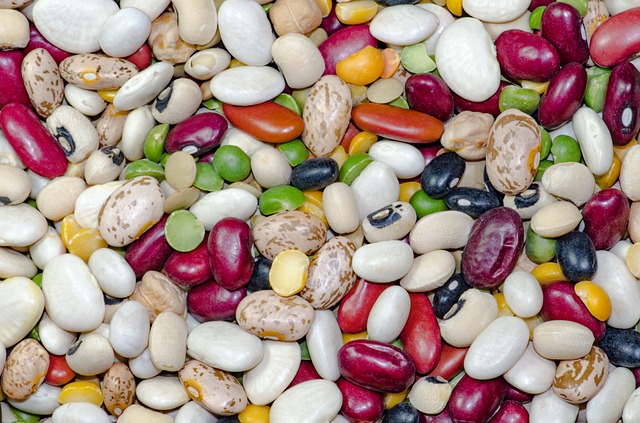
Zinc
Low zinc levels have been linked with symptoms of anxiety, along with elevated levels of copper. Copper and zinc are often linked because a lot of foods that contain high levels of zinc, like pumpkin seeds, and shellfish are also high in copper. So, if you have high anxiety, it’s best to get both zinc and copper levels tested before you supplement, then make appropriate dietary and nutritional choices.
With proper supplementation, zinc can make a difference for those suffering with disorders. A 2011 study by the National Health Institute showed supplementation with zinc lowered anxiety and decreased symptoms of depression. In a separate study, participants were given 50mg of zinc in capsule form per day, resulting again in decreased symptoms. The FDA suggested daily dose is 8 mg to 15 mg per day.
Omega 3
Omega-3 polyunsaturated fatty acids where shown in several studies to be a beneficial addition to treatment for those with significant anxiety symptoms. The studies showed a reduction of anxiety symptoms higher for those with diagnosed anxiety disorders who were also receiving other treatments. Further studies showed that supplementation of Omega-3 fatty acids did not prevent mental disorders, including anxiety and depression.
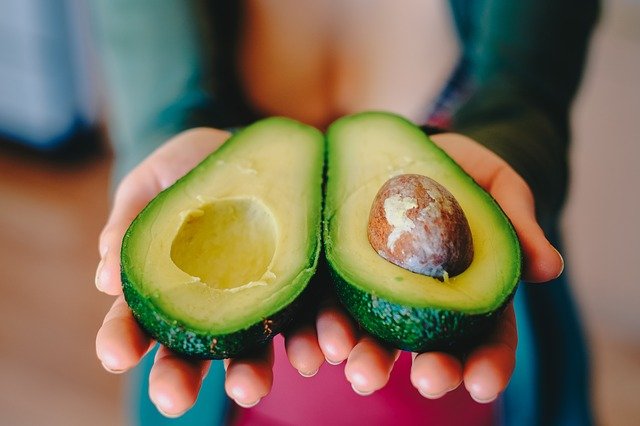
It is important to note that foods high in Omega-3’s help stabilize neurotransmitter function, stabilize blood sugar, enhance brain health and prevent heart disease. Healthy fats in the diet are sure to settle down nervous tension, when eaten as part of a regular diet. Omega-3 fatty acids may not be a prescriptible answer for anxiety symptoms but in my opinion are part of a good healthy diet, one that helps keep us on an even keel emotionally.
Vitamin B Complex
B vitamins are a group of 8 essential nutrients that play a role in how the body processes the food we eat, extracting nutrients and turning them into energy. They also help form red blood cells and help the body deal with stress.
Stress, anxiety, moodiness, depression, excessive use of alcohol, smoking, drugs, and an unhealthy diet can all deplete vitamin B levels. Deficient vitamin B can cause anemia, fatigue, nervousness, insomnia, nervous system disfunction, brain fog, poor memory, moodiness, anxiety and more.
Supplementing with vitamin B works best when all 8 vitamins are contained in the same supplement. A special note here: Increasing vitamin B does not work for everyone with anxiety, it is, however, an essential part of a healthy diet.
A Diet to Decrease Anxiety
A healthy well-rounded diet, high in whole grains, natural foods, healthy fats, dark leafy greens, and fruits, and vegetables is recommended to decrease anxiety. Cooked foods may also be more beneficial than raw foods. Cooked foods are more soothing to the nervous system and easier to digest.
According to the science of Ayurveda, anxiety is caused by an imbalance of air and ether (or space). These elements combined are commonly referred to as Vata Dosa. When air and space are excessive or not functioning properly, a person often feels disconnected, anxious and out of control.
Sadly, a complete explanation of this concept is beyond the scope of this writing. The dietary concepts involved though are some of the best guidelines when applied to anxiety. Below, are easy to follow recommendations to help pacify vata dosa, a good step to bring relief to anxiety symptoms.
Foods to Avoid
When suffering for Anxiety, the following foods are best avoided:
- Alcohol
- Sugar and sugary foods or snacks
- Processed foods and fast foods
- Coffee or highly caffeinated beverages
Summary
In summary, what we eat matters. Nutrition matters. The food we take into our body lays the foundation for all that we are. Not only physically, but mentally and emotionally. By eating foods that are right for us, not skipping meals and drinking plenty of plain water, we’re laying the foundation for good health that includes a balanced emotional state.
Nothing happens overnight. All good things start with one step, then continue to move forward. If you need help and encouragement on your journey, please don’t hesitate to contact me. We all need support, especially when things are changing.
Product Suggestions

Wonderment Gardens LLC
Wonderment Gardens offers a full line of high quality, small batch, herbal products. Each one, handmade with love and integrity.
Herbal remedies work best when personalized. Annie Jones, clinical herbalist and yoga therapist is happy to assess your personal needs and help you develop an individualized healing plan.
Contact Annie to find our more about scheduling a consultation or ordering a specialized formula.
Affiliate Product Suggestion
Nutritional solutions for anxiety relief
Further Reading

An Herbal Interlude with Catnip
Catnip – Nepeta cataria Family – Lamiaceae, the mint family Table of Contents Common Names Catnip is also commonly called Catmint, Catswort, Catnep, and Field

An Herbal Interlude with Black Cumin (Nigella sativa)
Black Cumin (Nigella sativa) Family – Ranunculaceae or Buttercup family Black Cumin is an AMAZING herb. I became aware of it only recently during my

Erectile Dysfunction Following Prostate Surgery
Dear Annie, I had my prostate removed due to cancer about 8 months ago and am now having problems with intimacy. Would a testosterone booster help? Any other ideas?

An Herbal Interlude with Oregano
Oregano (Origanum vulgar) Table of Contents Family – Labiatae or the Mint Family About Oregano Common Garden Oregano is an easy to grow addition to any

The Benefits of Mantra and Chanting
The practice of mantra and chanting is experiencing a new popularity in modern spiritual and yoga practices today. But they are not new. Mantra and

Healing the causes of suffering – A four-step model for healing
Yoga Therapy as a Healing Modality Offerings like “Yoga for Back Pain” and “Yoga for Stress Relief” are common, and seemingly increasing every day. But
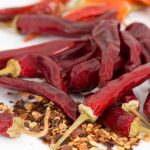
Natural Solutions for Shingles
Dear Annie, I have shingles; it is painful. Is there anything that can help? OH, Dear Friend, I’m so sorry. Shingles can be very painful.

An Herbal Interlude with Common Mullein
Common Mullein (Verbascum Thapsus) Family –Scrophulariaceae or the figwort family Table of Contents My friendly Mullein Rant Common Mullein is one of the top 10

An Herbal Interlude With Arnica
Arnica Botanical Names Arnica cordifolia, A. chamissonis, A. montana, and others More years ago than I can count, Arnica was one of the first plants

Bee Stings and Bug Bites
This summer my family has been hanging out in the pool almost every day. It’s a small pool, but big enough to float around and

Natural Solutions for Peripheral Edema
Dear Annie, do you have any ideas about using natural solutions for peripheral edema or swelling in the legs? I have edema in my left

An Herbal Interlude with Saw Palmetto
Saw Palmetto is the gold standard for male reproductive issues. It also has affinities for the respiratory, digestive, immune and the genitourinary system.

Benign Prostatic Hyperplasia (BPH)
Benign Prostatic Hyperplasia (BPH) is a chronic condition that affects 50-60% of all men over the age of 60. The good news is that Men have been successfully using herbs and yoga therapy to manage the problem for well, almost ever.

Prostate Enlargement with High PSA Levels
Dear Annie – Can you offer any direction for prostate enlargement with high PSA Levels? I am a 70-year old man and have been going

Natural Treatments for Giardia
Natural treatments for giardia involve a multi-dimensional approach. First we must stop the parasites growth, next we’ll want to support gut health and more

COVID19 Closing of the Lungs
The next stage of illness is called COVID19 Closing of the lungs or the Plague Closes the Lungs. Yuck! And that pretty much sums it

Fever from an herbalists perspective
Hello Plant Friends, For the past few weeks, we’ve been talking about the COVID-19 virus. Focusing on symptoms, stages of progression and treatment strategies. This

Prevention of COVID-19 from an Herbalist Perspective
Using foods and herbs as prevention strategies, we want to focus on a healthy lifestyle and strengthening our bodies natural built-in defenses.
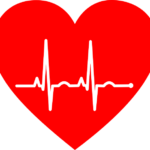
Herbal/Drug Interactions and Blood Thinning Medications
Dear Annie, I am at a loss since I began taking blood thinners last year. I love all my herbs and essential oils, but have been cautioned by my pharmacist not to use them. Please tell me more about the interactions between herbs and blood thinning medications.

Natural Solutions for Acid Reflux and GERD
Over 60 million Americans experience acid reflux (also known as heartburn) at least once a month. Some studies suggest that more than 15 million Americans, or about 18% to 27% of the total population, experience heartburn symptoms daily.

Urinary Infections in Dogs
Herbs that may help prevent urinary infections in dogs, as a side benefit, may also help with urinary incontinence and tone the colon wall.

An Herbal Interlude with Blessed Thistle
Blessed Thistle was considered a heal-all in medieval Europe where it was used as a primary treatment for the bubonic plague. Today it’s used to improve digestion and to treat liver and stomach problems.
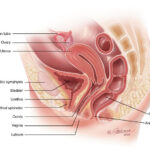
Natural Solutions for Abdominal Organ Prolapse
Dear Annie, I was diagnosed with bladder prolapse. The doctor recommends surgery. I’d like to avoid surgery. Is there anything I can do?
Thank you, this is a great question. There are several natural solutions that can help reduce symptoms and support the abdominal region and pelvic floor.

Natural Solutions for Hair Health
Dear Annie, What would you suggest I look for in a hair serum to promote scalp, Hair health and growth? Since the birth of my son 5 years ago, I’ve noticed my hair thinning. I don’t feel like I’m losing my hair but notice a lot on my brush and it feels like my hair is thinner.
The consistency of hair can often change at different times in life and is often connected to a major life change, like having children, menopause, age or illness. Hair (all over our body) is linked to the health of the entire system and is an indicator of your overall state of health.

Natural Solutions for Vertigo
Dear Annie, do you know of any natural solutions to help relieve vertigo? It started over a year ago, but I’ve had very few episodes until recently. Its miserable. A few times now, I’ve been so dizzy; I get nauseous. My ears ring “normally” yet a few hours before the onset of a vertigo episode, my left ear rings louder.

An Herbal Interlude with Kava Kava (Piper methysticum)
Kava Kava (Piper methysticum) Family – Piperaceae or Pepper Family Table of Contents About Kava Kava is a widely cultivated member of the pepper family.
Thank you for reading my blog. I hope you found it interesting and inspiring. I would love to hear your ideas about nutrition and how it relates to anxiety. Please, if you are so inclined, use the comment section below to share your experiences. If you want to share, but things are a little too personal, you can contact me by e-mail at annie@wondermentgardens.com
Many Blessings
and Good Health
Annie
References
http://www.mensahmedical.com/zinc-deficiency-and-anxiety/
https://chopra.com/articles/an-ayurvedic-approach-to-anxiety
https://www.ncbi.nlm.nih.gov/pmc/articles/PMC6770181/
https://journals.plos.org/plosone/article?id=10.1371/journal.pone.0180067
https://utrechtayurveda.nl/wp-content/uploads/2018/08/Balancing-Vata-Dosha-Diet-Utrecht-Ayurveda.pdf
Disclaimer
The statements and ideas presented here are not intended to diagnose, treat, cure, or prevent any disease or condition. They have not been evaluated by the FDA. All ideas presented are for the sole purpose of education. To help you take control of your own health. If you have a health concern or condition, consult a physician. We suggest that you always consult a medical doctor before modifying your diet, using any new product, drug, supplement, or doing any new exercises.
These statements and products have not been evaluated by the FDA. They are not intended to diagnose, treat, cure, or prevent any disease or condition. If you have a health concern or condition, consult a physician. Always consult a medical doctor before modifying your diet, using any new product, drug, supplement, or doing any new exercises.
Herbs taken for health purposes should be treated with the same care as medicine. Herbal remedies are no substitute for a healthy diet and lifestyle. If you are serious about good health, you’ll want to combine diet, exercise, herbals, a good relationship with your doctor and a generally healthy lifestyle. No one of these will do it alone.
This information is designed to be used as part of a complete health plan. No products are intended to replace your doctor’s care, or to supersede any of his/her advice or prescriptions.


Thanks for the sharing your knowledge as well as
details its really helpful and reasonable.
This website was… how do you say it? Relevant!! Finally I’ve found something
which helped me. Kudos!